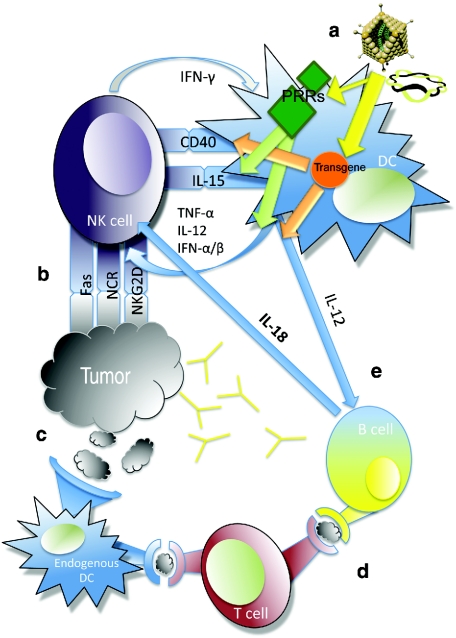Figure 3.
Complex interactions between dendritic cells (DCs) and other cell populations. (a) DCs are modified by RNA or DNA transfection, or infection using recombinant viruses. In addition to supporting T-cell priming, these factors can additionally support natural killer (NK) and B-cell activation. Viral components or foreign DNA/RNA can activate pattern recognition receptor, leading to upregulation of DC maturation factors and cytokine production, which, in turn, support NK cell activation. Bidirectional interaction between DCs and NK cells leads to interferon (IFN)-γ production and cytotoxicity from NK cells, and additional interleukin-12 (IL-12) from DCs. (b) NK cells initiate direct tumor cell lysis and additionally support T-cell activation by releasing tumor components. (c) Released tumor antigens can be processed and presented by endogenous DCs. This process facilitates further T-cell priming against an array of tumor-associated antigens. (d) Activated T-cells can additionally support B-cell activation. (e) Additionally, B-cells can support NK cell activation by releasing IL-18 in response to DC-derived IL-12.

